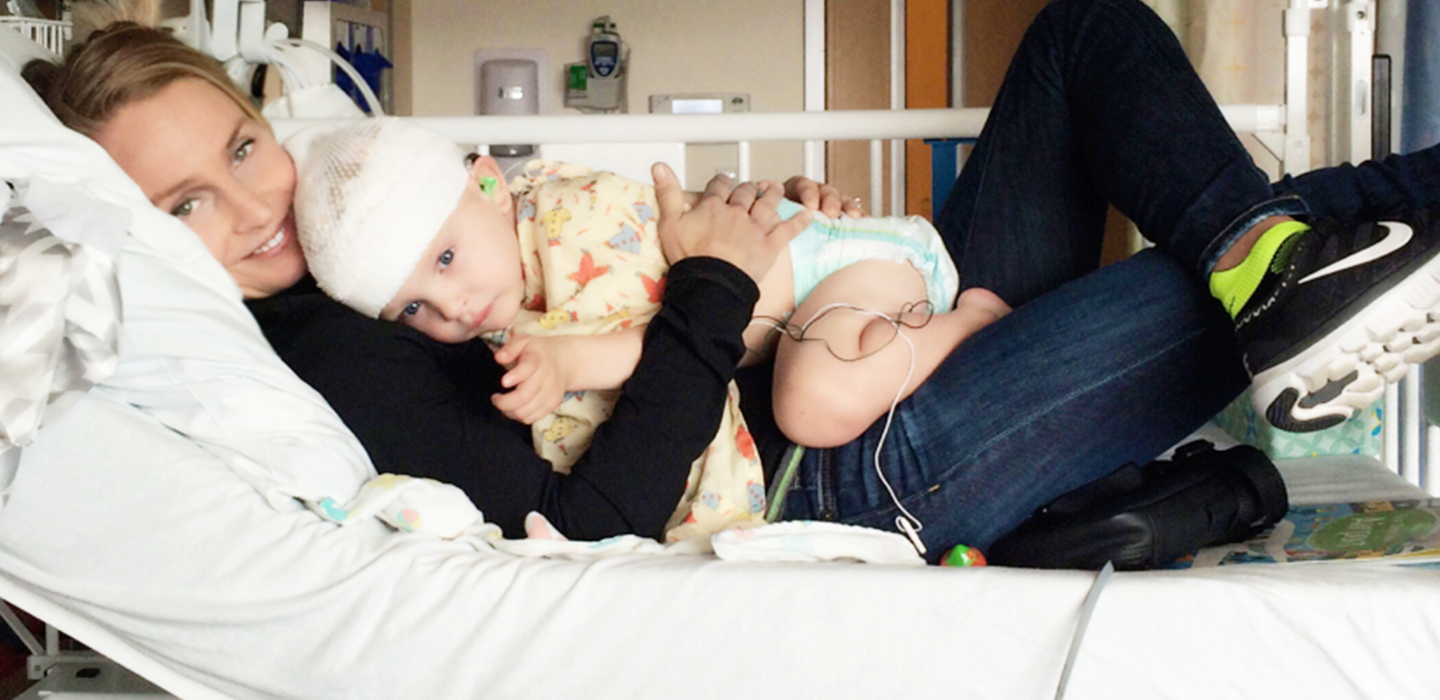Casen: The Gift of Time
From birth, Casen had strange – and serious – symptoms. With new technology, our experts finally discovered why.

Casen is a whiz at puzzles, cracks silly jokes constantly, and loves to run around on the playground.
He also has severe epilepsy caused by a rare nervous system disorder. As Casen’s brain declines, this genetic defect will eventually rob him of his ability to walk, talk, eat, and breathe on his own. He will almost certainly die by age 13.
Casen is 6.
While it’s heartbreaking for his family to know the challenges that lie in wait, they are profoundly grateful for this time with their spirited little boy. Without the expert care at UCSF Benioff Children's Hospitals, they wouldn’t even have that.
Since birth, Casen constantly got sick – really sick. “He’d catch a simple cold and end up with pneumonia in both lungs,” says his mother Katie. “Nobody could figure out why.”
Casen’s grandmother, who worked at UCSF for decades, suggested they bring him there for care. At that point, 2-year-old Casen had lost his hearing and relied on orthotics to walk. They flew down from Idaho, and the UCSF team – “the best of the best,” Katie says – quickly diagnosed Casen with epilepsy, which they deftly treated.
A year later, when Casen suddenly started stuttering and became unable to walk, the nearest pediatric neurologist recommended that the family simply accept that his condition was unlikely to improve. Unwilling to give up, Katie brought Casen back to UCSF, where the team stabilized him and offered a new technology: whole exome sequencing to unlock information written in his genes.
“It was amazing,” Katie says. “It answered questions that other tests couldn’t.” Unfortunately, the results were devastating. Casen didn’t just have epilepsy – he had a fatal disorder caused by a genetic defect.
Back in Idaho, they soon faced another setback. Casen entered an almost catatonic state, having nearly constant seizures. Their hospital again sent him home, Katie says, essentially to die. Instead, they put him on an airplane bound for San Francisco. With the right tests, a deep understanding of epilepsy, and expert dosing, the UCSF team again brought him back to the spunky kid they loved.
“UCSF does not just look at him and say, ‘Sorry, there’s not much we can do,” Katie says. “They treat what they can treat.”
Since being diagnosed, Casen has lost his abilities six times and been brought back to normal at UCSF each time. Every other child Katie knows of with his extraordinarily rare disorder relies on a wheelchair or has entered a vegetative state. Casen has regained his hearing, motor, and cognitive functions and attends a normal elementary school.
“For a kid who has every reason in the world to be angry, Casen isn’t,” Katie says. “He’s so happy all the time.”
Katie remains profoundly thankful for the team that keeps him that way, despite knowing what his future holds.
“UCSF has given us this time with him, and you can’t put a measure to that,” Katie says. “We’re very aware that all of UCSF’s efforts with Casen, while certainly valuable to us in the here and now, will have more of an impact on other children they treat after Casen is no longer here. That knowledge alone adds value to the purpose of our child’s life.”